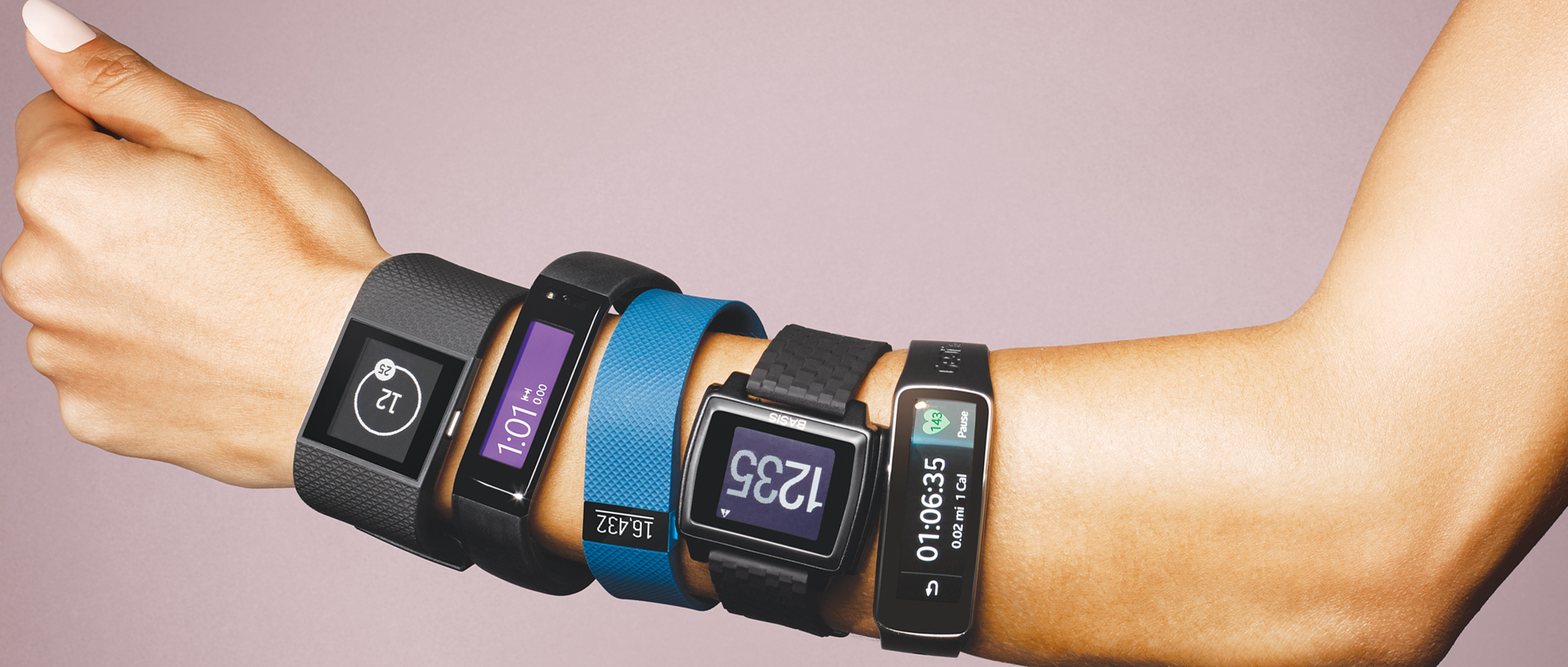![]()
Fitness tracker is a device for monitoring and tracking fitness-related metrics such as distance walked or run, calorie consumption, and in some cases heartbeat and quality of sleep. Fitness trackers are a form of wearable technology devices in the form of wristbands that are convenient to use. The term is also now primarily used for smartwatches that are synced (in many cases wirelessly) to a computer or smartphone for long-term data tracking.
Fitness trackers have become all the rage until today, and popular among fitness enthusiasts. You no longer need to log in into the fitness app on your smart phone to keep in track with your fitness goals. All you need to do is wear the fitness tracker and let it does the rest.
This device can be very useful when used correctly. Fitness trackers help us to become more aware of how much we exercise, how much calorie we consume, and how our health is improving from day to day.
But, like other types of technology, it does not always bring goodness and convenience to our live. Fitness trackers also have some downsides that surprisingly can affect the health of its users.
It makes you worried
“Why is my heart rate weak? Is my heart in trouble now?” “Oh, I have consumed more than 1000 calories today! I’ve must gained weight!” “Man, I only got 5 hours and 41 minutes sleep last night!” Do these sound way too familiar to you?
One of the biggest downsides of constantly wearing fitness tracker is that it can lead you to second guess your health and fitness. In some cases, some problems might actually end up seeming worse than they really are. Instead of motivated to keep fit, you find yourself checking on the device constantly and worrying about your health state.
It fuels harmful behavior
These devices are particularly dangerous for people with eating disorders because they fuel perfectionism and the need for control among people with eating disorders. The thought that “more exercise and less food are better” will fill their mind, and make the disorder even worse. However it does not mean that this won’t happen to people without eating disorders as well. They will let the fitness tracker leads their way they eat and exercise and not listen to their own body.
It makes you fixated
Fitness trackers are made to keep you motivated, track your progress, and achieve your fitness goals; but it also has some potential downfalls. Sometimes you look at those numbers and feel down because your pace is little slower. Then you find yourself constantly outdoing what your body is capable of. While it is good to continue progressing in a positive direction like this, an off day here and there, or some “cheating days” to eat your favorite cake is nothing to worry about. In fact, we all need to take it easy and let our body enjoy the progress without being tortured by our own target.

Comparing ourselves
Some fitness trackers have social media sharing options. Actually, this offers some benefits; for example you can connect with those who are likely to support and encourage you. However, this feature makes it possible to compare ourselves to others. When you find out that your cousin’s jogging mileage this morning is higher than yours, suddenly you feel inadequate. Those kinds of negative feelings can be discouraging and causes you stop working yourself out.
You can get addicted
Did you know that fitness tracking can be addictive? Once you start to see improvements in your performance and body, it can be very difficult to let go of that. And once you have collected several months’ worth of data, you can get triggered to continue collecting more of that data. At the end, you will feel distressed if you ever miss a day or run out of charge.
With those cons of wearing fitness trackers being said, it does not mean that you cannot wear them anymore. Fitness trackers can be very helpful in reaching your goals and keep you on your track. However, it is a manmade technology that is supposed to help you, not to define or judge you. You are the only one who understands your own body. Always listen to the way your body react to your fitness regime (especially those related to the usage of fitness trackers), and if you think that you have reached your limit, it’s time to stop.




